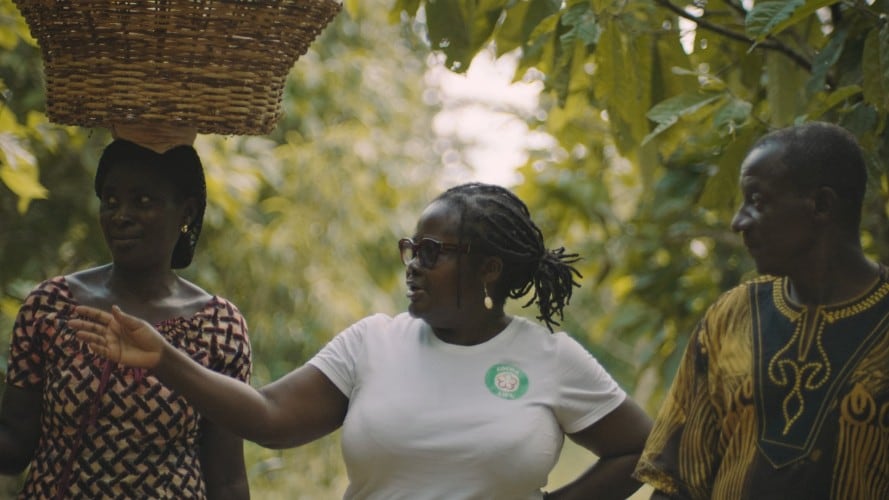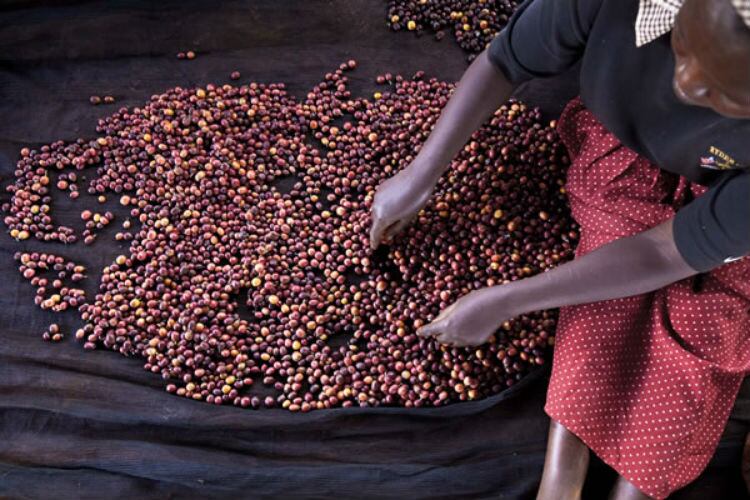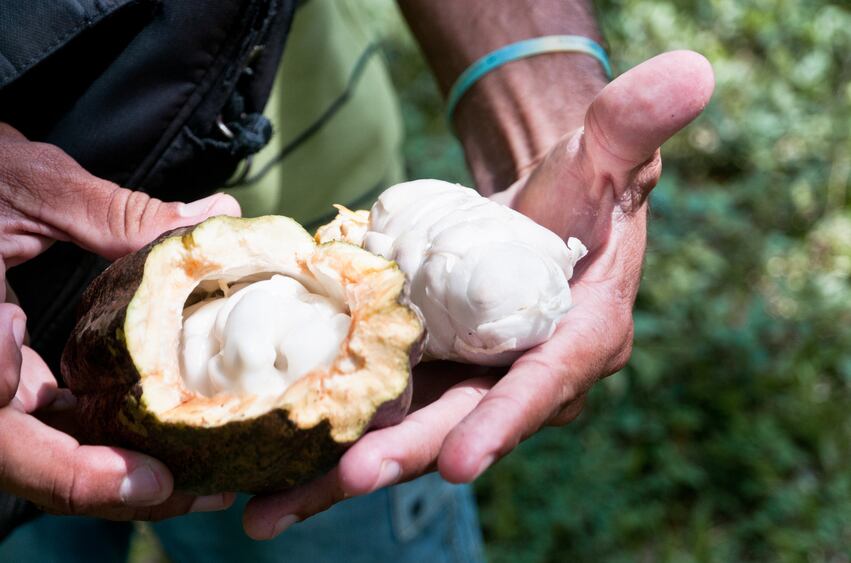Mondelēz International claims to have made significant progress against its ambitious 2022 targets to protect and restore forests in cocoa-growing areas through its commitment to the Cocoa & Forests Initiative (CFI).
As one of the world’s largest chocolate makers and founding signatory of the CFI, Mondelēz has been at the forefront of accelerating industry change through its holistic approach, and is making farming communities more resilient to the impacts of climate change.
Greenhouse gas emissions
In a new report delivered through the company’s cocoa sustainability program, Cocoa Life, it said the progress is a crucial step towards achieving the company’s new Science Based-Target to reduce absolute end-to-end greenhouse gas emissions by 10% by 2025 (compared to 2018).
We believe that partnership and sector-wide collaboration is the key to tackling climate change -- Cedric van Cutsem, associate director Cocoa Life
Published last year, the 2022 targets cover the company’s two largest cocoa-sourcing countries in Ghana and Côte d’Ivoire, as well as going beyond the CFI countries to cover its third largest, Indonesia.
Mondelēz says its Cocoa Life’s approach to these commitments has been twofold: to enhance and scale up the most successful initiatives in cocoa farming communities; while also piloting and learning from new, innovative approaches that will be accelerated or course corrected this year.
Oliver Nieburg, a sustainable foods analyst at Lumina Intelligence and author of a recent report assessing cocoa-driven deforestation, said: “Mondelēz CFI targets are expansive and have the prospect to support an industry-wide effort to curb cocoa-driven deforestation. Voluntarily setting targets for Indonesia is also a positive step.”
According to Nieburg*, Mondelēz has a target to source 100% of its cocoa from Cocoa Life by 2025, but it was still buying 57% of volumes outside of the sustainability programme in 2018 and 37% at the end of 2019.
“Scaling up to 100% is not straightforward – yet those 37% of volumes (around 166,500 tonnes produced by up to 110,000 farmers, according to Lumina estimates) are not yet enjoying the Cocoa Life support of farm mapping, GAP training, Payments for Environmental Services, and could be a deforestation risk.
“The speed of scale-up will be crucial to halting deforestation,” he said.
Cedric van Cutsem, associate director Cocoa Life, operations, Mondelēz International, said: “We believe conserving the land and forests is a promise to future generations, and our commitment to sustainably-produced cocoa reflects our purpose to empower people to snack right, supported by Cocoa Life’s commitment to make cocoa right.
“Looking ahead, we believe that partnership and sector-wide collaboration is the key to tackling climate change. Both the public and private sector have a shared responsibility to deliver on commitments they have made. Now we must work together to understand how to achieve our goals faster.”
In its report, Mondelēz reveals successful scaled-up initiatives, including:
- Cocoa Life has mapped 100% of the farms registered with Cocoa Life in Ghana, Cote d’Ivoire and Indonesia when targets were set in 2018, and is mapping farms newly registered in 2019 – to ensure cocoa is not being sourced from protected forest areas.
- In 2018 and 2019, Cocoa Life trained more than 134,000 Cocoa Life registered farmers in Ghana, Côte d’Ivoire and Indonesia in Good Agricultural Practices to increase yields and protect the environment.
- In 2018 and 2019, more than 60,000 farmers in Ghana, Côte d’Ivoire and Indonesia participated in Village Savings and Loan Associations (VSLAs), which, through access to financial services, enable cocoa farmers to become more climate-resilient.
The confectionery giant also pledges to “protect the future of cocoa farming and continues to pilot innovative projects”, including:
- Pioneering financial incentives designed to encourage climate friendly farming – Payment for Environmental Services – have been a success in Côte d’Ivoire and will be scaled up in 2020. These financial incentives are offered to cocoa farmers in return for planting non-cocoa trees on farms, and for protecting and renewing forest areas.
- Targeted Good Agricultural Practices (GAPs) pilots in Ghana, where farm practices are tailored per farm to increase cocoa productivity, are ready to be scaled up.
- Cocoa Life’s agroforestry pilots successfully provided a better understanding of how to make farms more resilient to the impacts of climate change.
- In 2019, Cocoa Life launched the first-ever tree registration app for farmers in Ghana to register their trees via smartphone, empowering farmers through tree ownership so they benefit from revenue generated through yields.and compensation should the tree be destroyed by timber merchants.
- Cocoa Life tested a deforestation risk assessment project in Côte d’Ivoire reaching 125,924 ha of forests covered in the assessment by 2019. In the next couple of years, the program will roll out this approach in other countries and continue to advocate for a more standardised approach within industry to see enhanced progress.
Lumina’s own report suggests addressing the indirect supply by either scaling up direct volumes under a company program or establishing pre-competitive public-private regional service centres to reach farmers operating outside of cooperatives. The report explores estimated costs and functions of such centres and the prospects for blockchain technology.
Nieburg said: “Mondelēz is not alone in this – and at least it has a target to scale up to 100%, which some others don’t. Mondelēz has also pioneered Payments For Environmental Services, which could incentivise farmers to implement agroforestry and reforest.
He added: “Although not a component of CFI, companies could voluntarily publish the daily net income of farmers in their programmes in Côte d’Ivoire and Ghana in US dollars (divided by number of household members) to prove CFI measures are having an impact. Increased incomes may reduce pressure on forests.”
Jonas Mva Mva, director of Cocoa Programs at IDH The Sustainable Trade Initiative, said: “Mondelēz International’s Cocoa Life program is to be congratulated for trying new, innovative approaches that are enabling farmers to produce more cocoa on less land in an effort to drive out deforestation and tackle climate change.”
- Last month Lumina Intelligence Sustainability published a report detailing how far the chocolate and cocoa industry is going to halt deforestation by 2020 and to restore degraded land and soil by 2030 under United Nations Sustainable Development Goal 15: Life on Land. The report explores the strengths and pitfalls of the Cocoa & Forests Initiative (CFI) amid warnings of a climate emergency and an incoming living income differential (LID) in the top two cocoa-producing nations.
* This article was amended 15:40, 26/3/2020 from "According to Nieburg, Mondelēz has a target to source 100% of its cocoa from Cocoa Life by 2025, but it was still buying 57% of volumes outside of the sustainability programme in 2018." To represent the up-to-date information provided by Mondelēz International.



